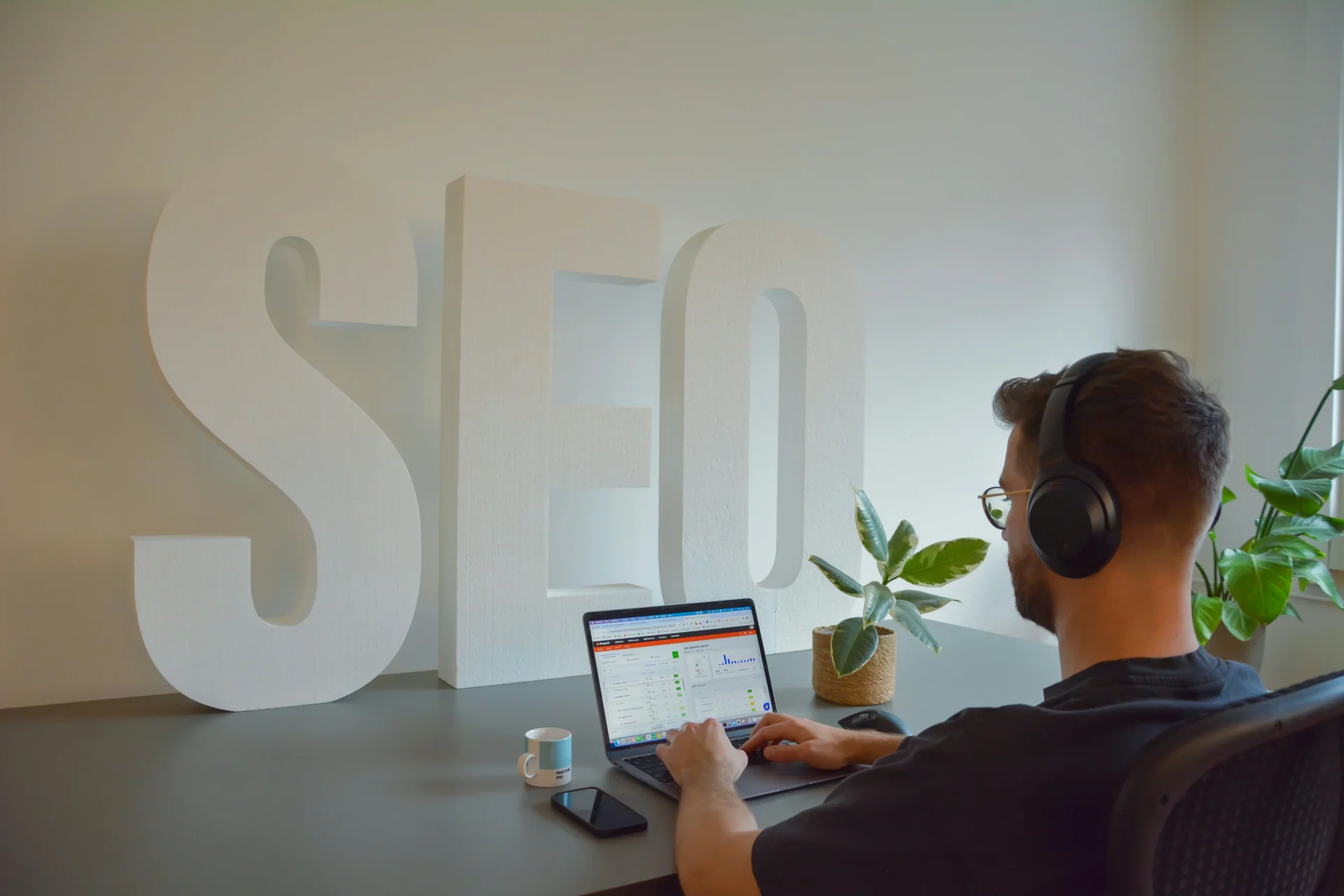The search landscape has evolved significantly, with artificial intelligence now at the forefront of this transformation. As users expect faster and more accurate results, businesses must update their SEO strategies to remain competitive and visible. AI-driven SEO enables a shift from traditional keyword targeting to more advanced, machine learning-powered insights. This includes smarter content recommendations, predictive analytics, and a deeper understanding of search behaviors. Embracing this evolution is essential for any brand seeking to grow its digital presence.
Beyond just automation, AI is reshaping the way marketers connect with their audiences. With enhanced capabilities to interpret user intent and context, AI demands a move from static SEO practices to flexible, data-informed strategies. This blog explores how artificial intelligence is now being used across all aspects of SEO, from keyword research to on-page optimization. You’ll gain insight into how AI can streamline processes, improve content quality, and enhance targeting precision. As we delve into each application, you’ll see how aligning with AI can lead to more effective and measurable outcomes. Keep reading to discover how your brand can stay ahead in the rapidly changing world of search.
Smarter Content Creation with AI Tools
Content is at the core of digital visibility, and artificial intelligence is elevating its production. With AI tools, businesses can generate content ideas based on trending topics and predictive analytics. This eliminates guesswork and aligns strategies with what audiences are searching for right now. AI driven SEO helps uncover content gaps by analyzing competitor websites and search intent. As a result, marketers can create articles that are not only timely but also deeply relevant to user queries. Consequently, this leads to higher engagement and stronger ranking signals.
Moreover, AI tools assist in crafting structured content that search engines favor. By analyzing sentence structure, keyword placement, and readability, AI ensures every piece meets modern SEO standards. This saves time during editing while improving accuracy across multiple pieces of content. Through AI driven SEO, creators gain suggestions on tone, length, and semantic enrichment. These enhancements help optimize for user satisfaction as well as algorithmic performance. Therefore, AI in SEO enables smarter, more strategic publishing at scale.
In addition, content performance can now be monitored and adjusted in real-time. AI tracks how users interact with each page and provides optimization tips based on those behaviors. This feedback loop allows businesses to make continual improvements to existing content. As algorithms evolve, so do the content marketing strategies. Artificial intelligence ensures adaptability by constantly recalibrating insights and tactics. In turn, marketers can maintain a competitive edge in an ever-changing search landscape.
Voice Search Optimization with AI
Voice search is rapidly reshaping how users interact with search engines. Unlike traditional text-based queries, voice search uses natural, conversational language. This shift requires content to be more fluid and question-based to align with spoken phrasing. AI driven SEO helps digital marketers analyze common voice queries and optimize content for them. As a result, websites can better match long-tail keywords typically used in voice search. This leads to improved chances of ranking in voice-based results.
Furthermore, voice search often prioritizes featured snippets and concise answers. AI driven SEO assists in identifying which types of content are most likely to be pulled for these snippets. By understanding voice intent, businesses can optimize content to meet these formats. In doing so, they enhance visibility on smart speakers and voice-enabled devices. This proactive approach helps brands adapt to changing user habits. Over time, it supports better engagement and higher SEO rankings.
In addition, voice search is heavily influenced by local intent and mobile usage. AI tools help track regional voice search trends and guide content creation accordingly. With AI driven SEO, it becomes easier to fine-tune metadata, FAQ sections, and schema markup for voice relevance. This level of precision ensures businesses are optimized for both national and local voice queries. As voice continues to grow, so does the importance of preparing for it. Leveraging AI insights ensures that brands stay ahead in this evolving search environment.
Visual Search and AI Image Optimization
Visual search allows users to find information using images instead of text, changing how search results are generated. Platforms like Google Lens and Pinterest have made visual discovery more mainstream. AI driven SEO plays a key role by optimizing image content through smart tagging, alt text, and context-based categorization. These enhancements allow search engines to better understand visual assets. Consequently, images become more searchable and relevant to user queries. This opens new pathways for organic traffic.
Additionally, AI helps improve image quality and site performance. By compressing images without sacrificing clarity, websites benefit from faster loading times. This is a critical SEO ranking factor that directly impacts user experience. AI driven SEO provides data on how images perform across devices and demographics. Businesses can use this information to prioritize which visuals to update or feature. These optimizations lead to improved engagement and longer on-site time.
Moreover, AI supports object recognition and content analysis within images. This means search engines can detect specific elements in photos and match them to user intent. With AI driven SEO, brands can ensure that their visuals align with what users are actively seeking. This is especially useful in e-commerce and lifestyle content, where visuals drive purchase decisions. Over time, optimized visual search presence translates to stronger brand awareness. As users increasingly rely on images to find answers, AI becomes essential for staying visible.

Personalization and Intent Matching through AI
Modern SEO goes beyond keywords, it’s about delivering the right content to the right person at the right time. AI plays a critical role in deciphering user intent, helping websites tailor content accordingly. With AI driven SEO, search engines can interpret context clues like phrasing, device type, and previous searches. This enables a shift from generic targeting to precision-driven content strategies. As user expectations grow, meeting intent becomes essential to gain and retain traffic. Thus, content personalization is now a key ranking factor.
AI also enhances dynamic content delivery based on audience behavior and segmentation. For example, it can customize landing pages depending on geographic location or user demographics. By analyzing past interactions, AI helps predict what users want next and delivers that content proactively. AI driven SEO supports this by feeding machine learning models with real-time behavioral data. This results in seamless user journeys and more meaningful engagement. Consequently, bounce rates drop while conversion rates rise.
Additionally, personalization helps businesses stand out in a crowded digital space. By making users feel understood, brands build trust and encourage repeat visits. AI helps refine these personalized experiences, ensuring they are both timely and relevant. Search engines reward this alignment between content and user expectation. Over time, such optimization strengthens domain authority and search visibility. Therefore, integrating AI into SEO allows for deeper connections with each visitor.
Real-Time SEO Auditing and Technical Fixes
Technical SEO is foundational but can be difficult to monitor and update consistently. With AI tools, audits can now be conducted continuously rather than periodically. These tools scan websites in real time to detect errors such as broken links, slow loading pages, or crawl issues. AI driven SEO ensures that these issues are flagged immediately and prioritized based on their impact. This allows teams to fix problems before they hurt rankings. As a result, site health remains strong and search performance stable.
In addition to flagging issues, AI can recommend precise, data-backed solutions. Whether it’s optimizing metadata or correcting URL structures, AI suggests changes tailored to specific search engine requirements. These insights go far beyond traditional checklists, offering nuanced improvements. Through AI driven SEO, website managers can access a smarter diagnostic approach that’s both faster and more detailed. This enhances efficiency and minimizes downtime caused by technical problems. Ultimately, this keeps a brand’s digital infrastructure in top shape.
Furthermore, AI SEO auditing adapts as algorithms change. As search engines update their ranking criteria, AI tools adjust their analysis to reflect new priorities. This ensures that SEO strategies remain aligned with current best practices. Businesses no longer need to play catch-up after every algorithm shift. Instead, AI keeps them ahead by continually updating recommendations and warnings. Therefore, real-time SEO auditing helps maintain search visibility even in a fluid digital environment.
Predictive Analytics and Future-Proofing SEO
One of the most exciting applications of AI in SEO is its predictive capability. Rather than just reacting to trends, businesses can now anticipate them. By analyzing historical data and current user behavior, AI forecasts which topics, keywords, and content types will rise in popularity. This allows teams to plan campaigns and content calendars with a forward-looking approach. AI driven SEO transforms forecasting from speculation into science. Consequently, brands can lead conversations instead of following them.
Additionally, predictive analytics helps allocate resources more efficiently. Marketers can focus on high-opportunity areas instead of spreading efforts thin across multiple channels. With AI driven SEO, it becomes possible to identify not only what will rank—but when and why. This ensures smarter investments in content, outreach, and optimization. Over time, the compounding benefits of these informed decisions enhance ROI. Therefore, prediction becomes a strategic asset rather than a nice-to-have feature.
Moreover, future-proofing an SEO strategy involves adapting to evolving algorithms and search behaviors. AI tools keep pace with updates by learning from ongoing changes in SERP structures and user intent signals. They help marketers remain compliant with emerging standards such as Core Web Vitals and semantic search. By anticipating shifts in the search landscape, businesses can adjust strategies before competitors react. As such, AI enhances resilience in digital marketing plans. This foresight gives brands a consistent edge over time.
Final Thoughts
As artificial intelligence continues to redefine the rules of search, brands that embrace this technology stand to gain a significant edge. From intuitive keyword research to dynamic content strategies, AI unlocks deeper audience insights and greater efficiency across all SEO efforts. The shift toward intelligent, adaptive marketing isn’t just a trend, it’s the future. For businesses ready to elevate their digital footprint, now is the time to align strategy with innovation and tap into the full potential of AI-powered SEO. Those who fail to adapt risk falling behind in an increasingly competitive digital landscape.
If you’re ready to take the next step, expert support can make all the difference. Partner with fishbat, a leading digital marketing agency based in New York, to craft a custom strategy that leverages AI for real results. Whether you’re refining your SEO approach or building a full-scale digital campaign, our team brings the tools, creativity, and insight needed to succeed in today’s evolving landscape. Reach out today at 855-347-4228 or hello@fishbat.com for a free consultation, and let’s explore how your brand can thrive in the age of intelligent search.


